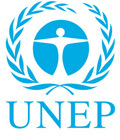The UN Environment Programme (UNEP) has published a report highlighting six case studies that: reflect the diversity and flexibility of the ‘blue economy' concept; illustrate how economic indicators and development strategies can better reflect the true value of ocean benefits; and demonstrate practical applications that can be implemented at the regional, country and community levels.
In the forward to the report, titled ‘Blue Economy: Sharing Success Stories to Inspire Change,' UNEP Executive Director Achim Steiner expressed that "ocean related issues are integral to most of the Sustainable Development Goals and to the transition towards the inclusive green economy."
 February 2016: The UN Environment Programme (UNEP) has published a report highlighting six case studies that: reflect the diversity and flexibility of the ‘blue economy’ concept; illustrate how economic indicators and development strategies can better reflect the true value of ocean benefits; and demonstrate practical applications that can be implemented at the regional, country and community levels. In the forward to the report, titled ‘Blue Economy: Sharing Success Stories to Inspire Change,’ UNEP Executive Director Achim Steiner expressed that “ocean related issues are integral to most of the Sustainable Development Goals and to the transition towards the inclusive green economy.”
February 2016: The UN Environment Programme (UNEP) has published a report highlighting six case studies that: reflect the diversity and flexibility of the ‘blue economy’ concept; illustrate how economic indicators and development strategies can better reflect the true value of ocean benefits; and demonstrate practical applications that can be implemented at the regional, country and community levels. In the forward to the report, titled ‘Blue Economy: Sharing Success Stories to Inspire Change,’ UNEP Executive Director Achim Steiner expressed that “ocean related issues are integral to most of the Sustainable Development Goals and to the transition towards the inclusive green economy.”
Using the six case studies, which were chosen to reflect a diversity of both scale and practice, the report aims to highlight successes in implementing the blue economy at four levels: regional (the Mediterranean); national (the Seychelles and Barbados); integrated governance (Norway); and community (the Gambia and Madagascar). Each case study identifies potential socioeconomic and other benefits (ecological, equity and efficiency) of the specific approach taken as they relate to the sustainable management of marine and coastal resources. The intention is that through the case studies, countries, communities and practitioners will gain a deeper understanding of enabling conditions, catalysts that have driven change, remaining challenges and future innovations.
The findings from the case studies include the importance of, inter alia: establishing a trusted and diversified knowledge base; resources that support innovation; and developing a stakeholder consultation process. The report emphasizes that existing structures and frameworks, along with innovative initiatives, can facilitate undertaking blue economy approaches without additional costs of system reorganization or the establishment of new regulatory structures. It also finds that: coordination and collaboration of blue economy projects and initiatives require broad and resilient partnerships; a strong knowledge base, regulations and policies are important in the transition to a blue economy; and upfront investments, especially those that result in longer-term, quantified and visible payoffs, are beneficial.
The report also describes the importance of: accounting that incorporates environmental and social dimensions, which are largely ignored in standard economic metrics such as gross domestic product; addressing issues of equity, management beyond historically defined boundaries, and traditional definitions of value, assets and resources; good governance of the high seas; ensuring access to the benefits of marine resources; and finding innovative ways to stimulate local economies. [Publication: Blue Economy: Sharing Success Stories to Inspire Change] [UNEP Knowledge Repository]